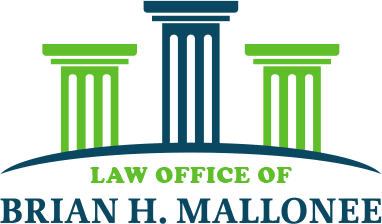December 13, 2022
United States v. Annamalai Annamalai, 2022 U.S. App. LEXIS 31651 *; 2022 WL 16959207 (filed November 16, 2022)
Hyde Amendment awards are rarely granted, even though federal judges hold the power to compel the government to pay legal bills in criminal prosecutions where government counsel did not file criminal charges in good faith. However, the so-called “Hyde Amendment” mechanism to recoup defense costs is rarely successful in the Eleventh Circuit.
More than 10 years ago, when a U.S. district court judge ordered the U.S. Department of Justice to pay in excess of $600,000 in legal fees as a sanction for a botched case against a Miami doctor, prosecutors appealed to reverse the decision. A divided U.S. Court of Appeals for the Eleventh Circuit upheld a three-judge panel’s dismissal of the fee award, holding that the malfeasance in prosecuting Doctor Ali Shaygan did not undermine the requirement that the case be filed in good faith. See United States v. Shaygan, 676 F.3d 1238 (11th Cir. 2012) (en banc).
In our case of the week, the Eleventh Circuit in United States v. Annamalai Annamalai, 2022 U.S. App. LEXIS 31651 *; 2022 WL 16959207, (filed November 16, 2022) has again reaffirmed its dilution of the “Hyde Amendment” to practically cover only the most extreme cases of government bad faith.
In 2014, a trial jury convicted Mr. Annamalai Annamalai of thirty-four (34) offenses, including conspiracy to commit bank fraud, bank fraud, filing a false federal income tax return, conspiracy to commit bankruptcy fraud, bankruptcy fraud, money laundering, making a false statement in writing, obstruction of justice, making false statements under oath during a bankruptcy proceeding, and conspiracy to harbor a fugitive. On his direct appeal, the Eleventh Circuit reversed his convictions as to the conspiracy to commit bankruptcy fraud, bankruptcy fraud, money laundering, and conspiracy to harbor a fugitive. See United States v. Annamalai, 939 F.3d 1216, 1221-1222, 1225-1235 (11th Cir. 2019) (Annamalai I). All other convictions were affirmed, and the case was remanded for resentencing. Id. at 1221, 1238-1239.
Prior to his resentencing, Mr. Annamalai filed a motion for attorney fees and costs under the Hyde Amendment for the reversed counts. The district court denied the relief requested, and Mr. Annamalai appealed. The Eleventh Circuit affirmed.
The Hyde Amendment provides in relevant part:
[T]he court, in any criminal case (other than a case in which the defendant is represented by assigned counsel paid for by the public) . . . may award to a prevailing party, other than the United States, a reasonable attorney’s fee and other litigation expenses, where the court finds that the position of the United States was vexatious, frivolous, or in bad faith, unless the court finds that special circumstances make such an award unjust. Such awards shall be granted pursuant to the procedures and limitations (but not the burden of proof) provided for an award under section 2412 of Title 28, United States Code.See Pub. L. No. 105-119, § 617, 111 Stat. 2440, 2519 (1997) (reprinted in 18 U.S.C. § 3006A, notes).
A defendant carries the onus of proving by a preponderance of the evidence that he or she is entitled to the award, but he or she must do more than show he or she prevailed at the pre-trial, trial, or appellate stages. Instead, a defendant faces the obstacle of proving that the “government’s position underlying the prosecution amounts to prosecutorial misconduct—a prosecution brought vexatiously, in bad faith, or so utterly without foundation in law or fact as to be frivolous.” See Annamalai at *7 (brackets added; citations and internal quotation marks omitted). For Hyde Amendment purposes,
[v]exatious means without reasonable or probable cause or excuse. A frivolous action is one that is [g]roundless . . . with little prospect of success; often brought to embarrass or annoy the defendant. [B]ad faith is not simply bad judgment or negligence, but rather it implies the conscious doing of a wrong because of dishonest purpose or moral obliquity; . . . it contemplates a state of mind affirmatively operating with furtive design or ill will. Id. at *8 (citation omitted).
The Eleventh Circuit held that its conclusion on appeal in Annamalai I did not show that the government’s position was legally frivolous. Although in its first decision on direct appeal, the Eleventh Circuit found certain conclusions were incorrect and based on a misunderstanding of bankruptcy law, it held that “incorrect interpretation of law or a misunderstanding of the law does not make a prosecution legally frivolous.” Id. at *9. The Court found that the prosecution was not “vexatious, in bad faith, or legally frivolous” and therefore the district court lacked discretion to award fees or costs. Id. at *10.
It appears that any federal prosecutor can avoid an award under the Hyde Amendment even when advancing an incorrect interpretation of the law under a misunderstanding of the law. Therefore, the Hyde Amendment, as interpreted by this Circuit, will only allow for an award of attorney’s fees and costs in the most egregious cases of flagrant prosecutorial misconduct.
LIKE THIS BLOG POST? SHARE IT WITH THE WORLD

